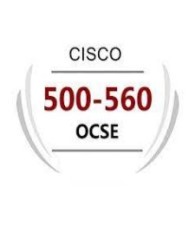Segment Routing over IPv6 (SRv6) is an extension of the IPv6 architecture that enables the insertion of routing instructions, known as segments, directly into IPv6 headers. This standards-based… Read more on Cisco Blogs
Segment Routing over IPv6 (SRv6) is an extension of the IPv6 architecture that enables the insertion of routing instructions, known as segments, directly into IPv6 headers. This standards-based technology enables simplicity, flexibility, and security at scale. The architecture, defined in RFC 8402, is a source routing paradigm that allows a node within a network to steer traffic through a domain using an ordered list of segments. The list of segments instructs nodes on how to process a packet. As the path information is within a packet transit or intermediate nodes do not have to maintain state of all the paths within a network.
IP Version 6 (IPv6), as noted in IPv6 OMB Mandate: What’s Your Strategy? is the new IP standard for the US Federal Government. IP Version 6 provides the additional addressing and foundation towards a Zero Trust enabled infrastructure.
Combining Segment Routing with IPv6, known as Segment Routing over IPv6 (SRv6), lays the foundation for end-to-end services and zero trust security across an entire organization/enterprise.
Why Segment Routing
Segment routing simplifies network architecture and operations via source-based routing. On the data plane Segment Routing can run via IPv6 or via multiprotocol label switching (MPLS). With the OMB IPv6-Only mandate and the inherent benefits of SRv6, government organizations should be gearing towards SRv6.
SRv6 empowers network operators with enhanced traffic engineering and the ability to go beyond. SRv6 enables efficient and resilient resource utilization, Any VPN, Service Function Chaining (SFC), 5G behavior natively with IPv6, and optimized path selection. The simplicity gained through reduced control plane complexity facilitates organizational visibility, operational simplicity, and infrastructure management. Simply put, if you can troubleshoot IP, you can troubleshoot SRv6. In an IPv6-Only environment SRv6 allows organizations to seamlessly scale and gain (back) the advantages of IP and IPv6 through address summarization. For example, a domain of 10 or 10,000 or larger can be summarized into a single IPv6 advertisement reachable via 1 simple prefix. Enterprises and large organizations with tens of thousands of nodes can now provide full reachability with very few IPv6 prefixes.
[ Segment Routing Details – https://segment-routing.net]
Cisco has been a leader in Segment Routing and SRv6 since its inception in 2013; to include shipping of SRv6 since 2019. Additionally, SRv6 is incorporated within open-source projects and open-source communities. Going forward this will continue to drive development and interoperability of SRv6 and offer benefits in terms of innovation, collaboration, and customization in meeting and exceeding business and mission objectives. Some examples of open-source projects include the Fast Data Project FD.io, SAI/SONiC, and Free-Range Routing (FRR). A more comprehensive list can be found at: https://www.segment-routing.net/open-software
Public Sector and Enterprise Use Cases
SRv6 along with IPv6-Only is applicable anywhere within an organization. Across government and public entities this includes regional education networks, broadband and middle mile initiatives, healthcare (e.g., telemedicine), 5G, Private 5G, IoT, and Edge. Future use-cases are numerous with benefits beyond legacy infrastructure; to include extension of SRv6 services to the application layer.
An excellent high-level design (HLD) of SRv6 can be found here: Cisco Converged SDN Transport SRv6 High Level Design. The concepts within this HLD such as a core network are the same as a self-managed wide area network or core network of a large enterprise. In referencing the Cisco IPv6 Journey Map , public sector organizations should consider and plan for SRv6 within the strategy/planning phase. The ultimate outcome of transition to SRv6 and IPv6-only being mission success with added benefit of alignment with the OMB Mandate.
Get started with SRv6 and IPv6 today and learn more via the following resources:
Segment Routing
Converged SDN Transport SRv6
Transitioning to IPv6 for Simplicity, Efficiency, and Modernization
IPv6 Customer for Journey for Public Sector Organizations
Learn More:
Cisco Customer Experience and Services
Cisco Solutions for Government
Explore the future of networking with SRv6. Enhance IPv6, simplify operations, and bolster security and resilience. Discover how SRv6 transforms large-scale networks. Read More Cisco Blogs














